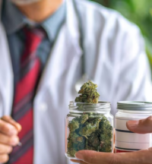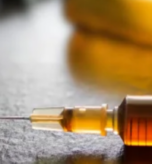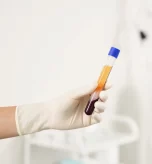As a medical consultant and MD, I have had the honor of working with many individuals on their journey to mental wellness and recovery. Throughout my career, I have seen firsthand the strength and resilience of Indigenous women. However, I also recognize the unique challenges they face, including abuse, trauma, addiction, and mental illness.
From centuries-old healing practices to the rich history of Indigenous lands, there is a deep connection to culture, tradition, and heritage. The beauty of storytelling, traditional dances, and ceremonies are the fabric of Indigenous life, passed down through generations. Yet, beneath this beauty, many Indigenous women struggle with inequities, poverty, and inadequate healthcare.

Indigenous Women Addiction Stats and Insights
Indigenous women are 50% more likely to develop an addiction compared to women of other races. Historical and intergenerational trauma, social determinants of health, and systemic factors all contribute to this increased risk. A 2019 Government of Canada study revealed that up to 92% of Indigenous women struggle with alcohol abuse.
The introduction of grain alcohol by Europeans and the trauma of human trafficking have also contributed to substance abuse. Many Indigenous women struggle with addiction to cocaine, methamphetamine, marijuana, and prescription medications. Unfortunately, they face unique barriers when seeking treatment, including cultural insensitivity and limited access to care.
Symptoms of Addiction
- Intense cravings that overshadow everything else
- Needing more of the substance to achieve the same effect
- Feeling anxious when the substance is unavailable
- Prioritizing substance use over relationships and responsibilities
- Using substances in unsafe situations
- Struggling with daily obligations
- Engaging in risky or unusual behaviors, such as stealing
- Losing interest in previously enjoyed activities
- Inability to stop using despite the desire to quit
- Withdrawal symptoms when attempting to quit
Indigenous Women Mental Illness Stats and Insights
Mental health disorders also affect Indigenous women at higher rates than other ethnicities. Factors such as discrimination, trauma, and socioeconomic challenges play a significant role.
Indigenous women are 56% more likely to be victims of sexual abuse, leading to higher rates of PTSD. Approximately 64% of Indigenous women experience mental health issues, including depression and anxiety. Suicidal ideation is also a critical concern, with a significantly higher rate compared to non-Indigenous women.
Symptoms of Mental Illness
- Persistent sadness, anxiety, or an “empty” mood
- Feelings of hopelessness, guilt, or worthlessness
- Irritability and loss of interest in activities
- Fatigue and decreased energy
- Physical symptoms without a clear cause
- Restlessness and difficulty concentrating
- Sleep disturbances, appetite changes, and suicidal thoughts
Co-Occurring Substance Use Disorders (SUD)
Indigenous women often experience co-occurring SUDs, where mental health disorders such as depression, anxiety, and PTSD lead to substance use as a coping mechanism. Successful treatment must address both the mental health disorder and the SUD to achieve lasting recovery.


Mental Health and Addiction Treatment Programs and Services
To support Indigenous women, I recommend a range of treatment programs that address both mental health and addiction:
- Partial Hospitalization Program (PHP): Intensive treatment several days a week.
- Intensive Outpatient Program (IOP): Flexible treatment for those needing more support than traditional outpatient services.
- Outpatient Treatment Program: Ongoing therapy and counseling.
- Medication-Assisted Treatment (MAT): Combines medication and counseling to manage cravings.
- Relapse Prevention: Techniques to identify triggers and build healthy habits.
- Holistic Treatment: Incorporates physical, mental, emotional, and spiritual well-being.
- Family Program: Offers support and education to family members.
- Alumni Program: Connects past and current clients for mentorship and support.
- Eye Movement Desensitization and Reprocessing (EMDR): Helps process traumatic experiences.
- Medical Detox: Supervised withdrawal with medication support.
Addiction, Mental Health, and Wellness Resources for Indigenous Women
Addiction Resources:
- AddictionHelp.com
- National Indigenous Women’s Resource Center (NIWRC)
- Native American Rehabilitation Association (NARA)
- StrongHearts Native Helpline (1-844-762-8483)
Mental Illness Resources:
- Native American Lifelines
- Indian Health Services (IHS)
- National Alliance on Mental Illness (NAMI)
Wellness Resources:
- Tribal Health Departments
- National Indigenous Women’s Resource Center (NWRC)
- Native Wellness Institute
Providing Culturally Sensitive Support for Indigenous Women’s Healing
Supporting Indigenous women struggling with addiction and mental health issues requires not only effective medical treatment but also respect for their cultural heritage. By blending traditional healing practices with modern medicine, we can offer a more holistic approach to recovery.
If you or someone you know is facing these challenges, please reach out for help. The path to healing is within reach, and there are resources available to guide you every step of the way.
For more information or to schedule a consultation, please feel free to contact me. I am here to support you on your journey to wellness and recovery.
— Dr. Joseph Rosado, MD, Consultant





